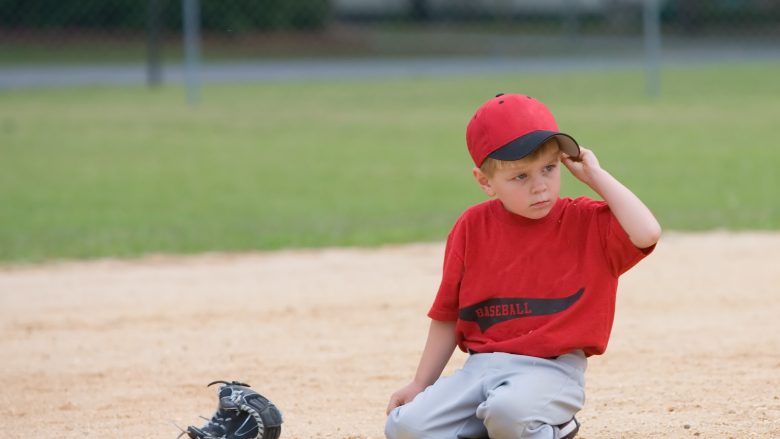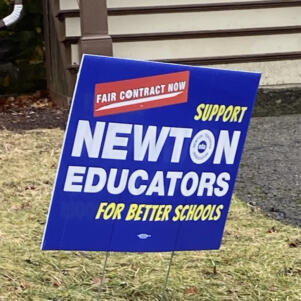Baseball Literacy and the Health of A Nation
By Matt McDonald | October 24, 2017, 16:12 EDT

As the World Series gets under way this week, much of the attention will go to how the Los Angeles Dodgers match up with the Houston Astros or what TV ratings will be like.
My question is: How many kids in this country will understand what’s going on?
For the last several years I have watched a lot of youth baseball, including a few seasons as a coach at the Little League and Babe Ruth levels. (The age range is roughly 8 to 15.) What I see dismays me.
It’s not so much talent or skill level, but knowledge of the game.
I have seen teen-agers sprint off first base or second base when the batter hits a sky-high popup with less than two outs, then act incredulous when informed that the fielders doubled them up at the base they left from after the ball was caught.
I have seen ten-year-olds playing third base catch a ball thrown by the catcher and triumphantly step on the bag during a steal attempt, without bothering to try to tag the runner. (Since it’s not a force play, tagging the base does the fielder no good.)
I have seen eight-year-olds swing and miss at three consecutive pitches and then have to be told by the umpire that they are out and have to go back to the dugout. (Sometimes this scenario has played out more than a half-dozen times in the same game.)
These are not rare or even occasional occurrences, but have become so common that I expect them. I even expect to have to go over such matters repeatedly during practices and games.
Lest you imagine these are arcane details of baseball, they aren’t. They’re basic. We’re not exactly talking Infield Fly Rule here.
When I was eight years old, playing wiffle ball and occasionally hardball with other boys my age, the intricacies of force plays and tag plays were our currency. We all knew the rules of the game.
Three strikes and you’re out didn’t even require any thought.
But seeing how many kids know so little about baseball — and this is among the number of kids who come out for baseball, which itself is on the decline — makes me think that kids today don’t generally play baseball on their own.
What was once called the national pastime – and what really is the national game – now appears to be something that some parents drag their kids to in order to have them participate in an activity outside of school that doesn’t involve thumbs and color screens.
As a coach I routinely field questions about how much longer the game has to go on and whether a particular player can sit out more innings than he has to if we have more than nine players at a game.
When I was their age, we would have all killed to get onto the field and to make the game go on as long as possible — and would have killed these kids, if they were available.
It’s not that they’re bad kids. Most of them I enjoy being around. But their interests aren’t baseball.
This worries me.
Tomes have been written on the virtues of baseball. I won’t recapitulate them here. But there are a few things baseball has going for it that nothing else does.
One is how much baseball rewards cleverness. Like any sport, it’s physical, and someone with more dexterity is likely to do better than someone with less. But the ability to outthink the other guy helps batters, pitchers, fielders, and baserunners more than it does players of other sports. Baseball has been called the Thinking Man’s Game, with justification.
Another is focus. Baseball is occasionally criticized for being slow, but that’s actually part of the appeal. There is so much going on in baseball for so long a period of time that it rewards concentration like no other activity I know of. To succeed in baseball requires not only the ability to think, but the ability to think constantly.
Another is how American the game is.
There are disputes about when and how baseball started. But it’s clear that it has been played in America for a long time by a lot of people. Nowhere else has it been played as long or by as many, and only a handful of countries play it anywhere near as much as we do.
In other words, baseball for decades has played a unifying role in our culture.
A couple of stories from World War II show that. One time, some American soldiers who came upon the actor David Niven wondered if he might be an enemy spy, so they asked him who had won the previous year’s World Series. The implication was that any American man would know the answer to that question. (Niven didn’t, not because he was a spy, but because he was English.)
Another time, some American soldiers fighting the Japanese decided to insult them through their emperor by yelling “To Hell with Hirohito.” The Japanese responded by yelling “To Hell with Babe Ruth.”
The point is: Whatever troubles or disagreements we had, baseball was ours.
It’s common nowadays – Left and Right – to fret about how as a nation we seem to have lost our way. There’s a lot of evidence for it, and there are a number of worrisome root causes. There’s so much trouble out there that we can’t possibly solve all the problems by ourselves.
But we can take baby steps to try to make things better, a little bit at a time.
Here’s one, parents:
Teach your kids baseball.
Matt McDonald is Publisher and Editor-in-Chief of New Boston Post. See other articles by him here.











